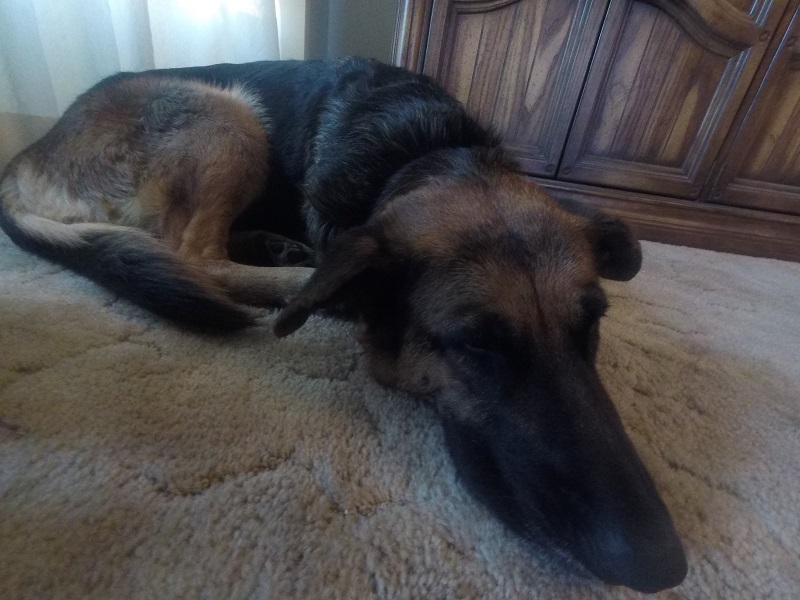One of my weekly VA therapies is a group meeting with other PTSD guys. One of the new additions to our group is a young woman who is a psychology intern working at the VA with our regular group psychologist. At group on Friday she drove the discussion for the entire 1.5 hours with one question about talking to family.
How Do You Talk To Your Family?
She actually asked in in three parts: talking to them about treatment, talking to them about symptoms, talking to them about the trauma. This also morphed into another question: How do you choose who to talk to?
Talking To Family About Treatment
It hasn’t been hard for me to talk to family or others about treatment. It used to be something I was embarrassed by, but not anymore. I’m happy to be getting the treatment I am, and so it isn’t hard to tell people about something I am glad to have happen in my life. As soon as I got over the stigma/issues surrounding telling people I have PTSD, it became easy to tell them that I’m getting treatment for it.
Telling people you have a mental health issue isn’t desirable. There is still a lot of negative stigma with it. There is still a little worry that people will have the negative reaction, or even just a negative thought about me, when I tell them. But I’ve accepted that that is a problem with them, and not with me. So yes, I have a mental health issue in the form of PTSD that I receive treatment for twice a week. After years of not understanding what was going on with me, or not having treatment easily available, I’m just simply thrilled to be getting treatment that I hope is helping.
Talking To Family About Symptoms
This is much harder for me to do. The two main reasons for this are 1) these are much more personal than simply stating I have PTSD; and 2) I don’t fully understand or recognize them myself.
Talking of the symptoms is personal and feels awkward. I’ve been dealing with this for so long now (almost a decade) that it is hard to distinguish between what emotions/reactions are “me” and which ones are from the PTSD. One of the common themes of the therapies is to try to separate them for ourselves. One group participant said he found a lot of mental relief when he jokingly named his symptoms Bob (anxiety), Fred (anger), and George (depression). Now he is no longer depressed, but instead “George is visiting.” Or if his wife asks how he is doing he might say, “Bob stopped by to say hello” and she’ll understand.
It is also hard not to feel like talking about the symptoms is in some way shifting blame. I can’t use them as justification for the way I am. It isn’t okay to say that I yell at times, but it’s okay because I have PTSD. I don’t want to use that as an excuse for not trying to get better. PTSD isn’t something that goes away, but is something that can be controlled and managed. And I need to learn to manage it.
A big part of why talking to family about symptoms is hard is that I don’t know them all. There are diverse symptoms that come and go. Sometimes they come and go quickly. I might be fine walking through a supermarket one moment, and the next I’m feeling trapped and in danger. I’ve only been in treatment for a few months now, and I’m still hearing people talk about symptoms they have that I also have, but that I didn’t even recognize as being symptoms until it was brought to my attention. So I can’t just give a definitive/final list of symptoms. I don’t know what they are, when exactly they’ll manifest, how intense they will be, etc.
Talking to Family About the Trauma
HAHAHAHAHA! No! Doesn’t happen. Hasn’t happened. Might never happen. Don’t fool yourself!
That might be a little strong, but close to true. I’ve talked to Julie only in vague terms and very limited in scope. I’ve told my parents even less. Nobody else has gotten anything else to date except my therapist, and he’s only gotten about as much as Julie has.
This is a hard topic to talk about. It isn’t something I like to think about. I don’t want to relive it. Talking to family about it just isn’t on my To-Do List. It causes a lot of mental agony and stress to talk about it. It is an extremely undesirable task.
I’m not alone with this sentiment. Our intern said one of the trainings she is getting has a “homework” assignment to have patients go home and talk to family about it. She asked how we feel about that.
One guy said he did it once and will never do it again. He talked to his adult daughter and it turned out disastrously and they haven’t spoken since. All she had to say to him at the end was, “maybe you deserved it.”
Another told of the two destroyed marriages, estranged relationships with children, etc, and said talking to them never worked. They simply didn’t believe him, grew to fear or distrust him, and used the information as a weapon against him.
Another said that only after 38 years of marriage did be begin to trust his wife enough to talk to her with vagueness. Past experience has trained him not to trust people with deeply personal sources of pain because they’ll use it against you.
I trust Julie, so that isn’t my issue. But I don’t want to taint her. I don’t want her looking at me differently. She shouldn’t have to feel sorry/hurt/pain for me. I don’t want her to have to hear how vile and terrible the world and the people in it can be. I don’t want to ask her to shoulder the pain I am carrying, and I feel like talking to her more openly would do that.
Finding People to Trust
This was the biggest issue for all of us in my group when it comes to talking about the trauma. There is no way to know how people will react, and our combined experience said that almost everyone will react badly.
When the VA gave me my 100% disability rating and paid me for being unemployable I also applied for Social Security Disability. Of course they denied the initial claim (as they always do as a matter or policy) and so I appealed. That led me to sitting in front of one of their administrative law judges.
He needed to ask about my disabilities obviously and asked about the PTSD and it’s source. I gave him a simple response about the trauma and this guy stops and looks up at me and says, “Really? You’re a huge guy and look like a football player. That couldn’t have happened. You expect me to believe that story?”
And that is why it is hard to know who you can trust, and who you can safely talk to. Even this government official, who presumably has a history of dealing with people with PTSD, was full of negativity toward me.
I’ve had it happen with church leaders too. One I’m dealing with one Stake President right now who tells me every time I see him that he doesn’t believe mental health issues cause the problems that they cause. How am I supposed to talk to him at all after he tells me that?
Most people just don’t have the training to deal with it, gov’t and clergy alike, let alone family. They don’t have the experience to tell them it is even real, or really has the effects on you that it does. They dismiss it, don’t believe it, or think that you are somehow to blame for what happened to you.
Family Too!?!
I even had it happen with a family member who I previously had had a great relationship with. This person was in my home one day and complaining that I wasn’t doing enough to take care of Julie and the kids. “Why aren’t you working?” and so on. I replied, “Because I can’t. I’m a disabled vet who was injured in the military!” They came back with, “No you weren’t! Blake (my Vietnam Vet – Purple Heart Father-in-law) was injured in the military. You weren’t!”
So even this close family member didn’t believe me, and accused me of pure laziness, in my own home no less. I, of course, reacted badly and essentially called them a horse’s ass on social media. That has led to two of Julie’s sisters to refuse talking to me AT ALL for almost 5 years now (I’m assuming that is the reason, but maybe it’s some other personality flaw).
So talking to family is a difficult thing to do and seems to only end badly. There is no way to know how they’ll react, and experience says that they’ll almost definitely react badly and/or use the information to cause you more pain/suffering.
Everyone in my therapy group has a collection of similar stories. EVERY! ONE!
How To Choose People To Trust
Don’t! Just don’t!
I wish I could give you a feel good story about talking to family or others, but I can’t. They will try to shield themselves from the idea that something similar could happen to them and will blame (or make up) some negative aspect of you that caused it to happen to you. And because they don’t have (insert negative idea they make up) therefore this trauma could never happen to them. It’s not their fault, it’s the natural human reaction. But now they view you negatively in order to believe that they are safe from the bad thing that happened to you.
So talk to them about treatment and positive strides your making. Even let them in on symptoms you experience if you feel inclined. But I say don’t bother talking to them about the trauma. It just ends badly.
Instead, find a good therapist who is under professional obligations of confidentiality and who has experience dealing with your issues.

